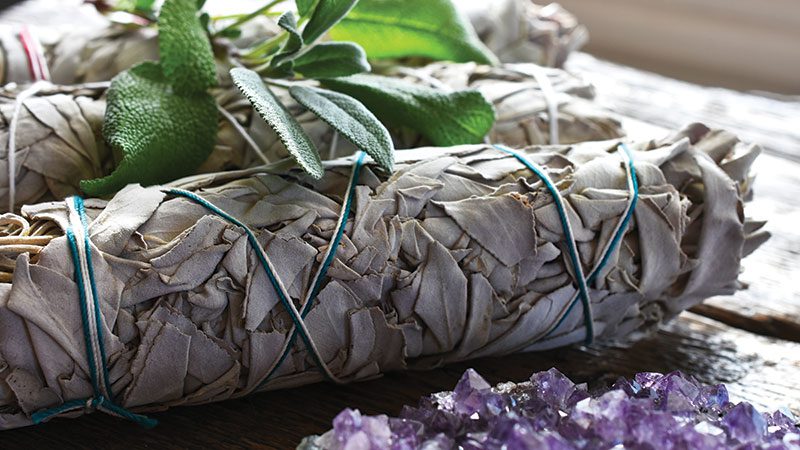Policy Report: Listening, Learning and Changing: It was time for white sage bundles to go
By Aimee Simpson
This article was originally published in September 2021

PCC no longer sells white sage essential oils or dried white sage and sweetgrass bundles.
The decision to remove those items from our health and body care department came after a comprehensive review by our Quality Standards Committee, a group of PCC leaders from different departments charged with maintaining and advancing our product standards. Part of the process involves thinking through best practices and how to address the complex issues facing our food systems today.
One of the biggest parts of that process is always listening and learning from our community. So, when we first received a customer concern about the white sage bundles last year, we were all ears and delved into what proved a difficult but necessary topic.
The issues surrounding the white sage bundles were twofold. We heard concerns about the environmental impacts of commercial harvesting of wild white sage (salvia apiana)—a native plant found in the southwestern United States as well as northwestern Mexico. We also heard concerns that selling the bundles for the purpose of “smudging”—a cleansing ritual practiced by many Indigenous cultures—was a form of cultural appropriation.
We discussed these concerns with Juniper Ridge, producers of the white sage bundles we carried at the time, and learned that Juniper Ridge was trying to address many of these concerns and lead the way on environmental and cultural sensitivity. Its efforts included strict harvesting guidelines for wild-gathered ingredients, and eventually a move to 100% certified organic farmed white sage. In an attempt to address the cultural appropriation questions, Juniper Ridge had removed all references to “smudging” and, starting in 2019, pledged 10% of white sage sales to Indigenous and First Nations groups.
Based on this information and additional research into other smoke cleansing practices and traditions across the globe, the Quality Standards Committee made sure that all “smudge” references were removed from our systems and signage. The committee also initially decided to keep stocking the products, supporting Juniper Ridge in its efforts to provide the bundles in a more environmentally and culturally conscious manner.
As time passed, however, the committee heard more community comments and concerns. We learned that white sage was not alone and that sweetgrass also held a rich cultural and spiritual place for Indigenous cultures. Eventually we determined that even Juniper Ridge’s efforts could not go far enough in respecting the cultural heritage of these sacred herbs, and that to commercialize or monetize white sage and sweetgrass at all was itself an affront to the Indigenous rituals and cultures that rely upon them.
We appreciate our dedicated members and community that continue to push us to be better. We share this decision and the process behind it to assure you we are continuing to listen, learn and change.
Aimee Simpson, J.D., is PCC’s director of advocacy & product sustainability.
